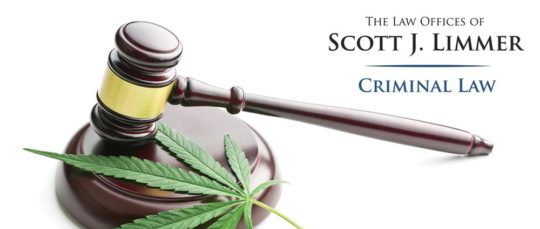It’s clear District of Columbia voters last November overwhelmingly approved a ballot measure (Initiative 71) to let residents age 21 and up legally possess as much as two ounces of marijuana for personal use, cultivate up to three mature plants, and give up to an ounce to other adults without compensation (selling would remain illegal). But, with the new law set to take effect February 26, not much else is clear about how it will work or whether Congress or the courts may override it.
To get even this far, the new D.C. law needed to get past a federal law giving Congress 30 legislative days to review and, by votes in both chambers and the president’s signature, invalidate D.C.-passed laws. Congress won’t use its potent but rarely-exercised veto power on the initiative, but Capitol Hill opponents of legal marijuana in December added a rider to the omnibus appropriations law to bar the D.C. government from expending tax funds to implement the voter-approved measure.
Nevertheless, D.C. officials are proceeding, arguing the no-spending provision came too late, since the marijuana legalization initiative had already been enacted, by being approved by the voters and certified by the local board of elections. It remains to be seen whether that issue will reach the courts, or how they would rule.
A bigger question mark is, even if the voter-approved measure escapes Congress’ spending ban, how the D.C. government will interpret and enforce the new law. Unlike voter-passed referenda in four states, the D.C. voters-approved measure does not provide a regulatory framework for such issues as licensing, sales, or taxation.
The District of Columbia authorized medical marijuana in a 1998 voter referendum which, like the legalization measure, won about 70% approval. Last year, the city decriminalized possession of up to an ounce of marijuana, making it a civil infraction subject to a $25 fine (which would end under the new law, though a $100 fine for public use would remain).
But the new voter-approved legalization law will take effect without any rules on where or how recreational marijuana can be legally obtained or regulating those markets. That absence, due to legal restrictions on what D.C. voter initiatives may include and drafters’ focus on home cultivation, leaves some observers predicting the Congressional ban, combined with eager marijuana entrepreneurs (a two-day Marijuana Expo is slated to start February 28 at a downtown hotel, with sessions on business trends and cultivation methods), could make the nation’s capital a new “wild west.”
A marijuana legalization and regulation bill (B21-0023) has been introduced in the D.C. City Council; it would authorize the D.C. government to register and supervise marijuana growers, product makers, testing labs, and retail outlets, and to impose taxes on legal marijuana sales. D.C. City Council bill lead sponsor David Grosso argues that, without regulations, confusion will reign on such much-discussed topics as the legality of private members-only “cannabis clubs.”
Recently-installed D.C. mayor Muriel Bowser (D) says the initiative establishes “home grow, home use,” and promises to seek emergency legislation from the D.C. Council to ban Amsterdam-style coffee shops. Regardless of the fate of the voter-approved measure, federal law – which makes growing, possession or use of marijuana a crime — will still apply on the national mall and other federal-run property (which makes up over a fifth of the city’s total area).
Not only does the D.C. Council legalization bill face an uncertain future, but if enacted, it would also have to run the gauntlet of Congressional review, and could face legal challenges due to the Congressional ban. Opposition from Capitol Hill can be expected: after D.C. voters approved medical marijuana, it took almost a dozen years for Congress to relent and allow the District government to adopt a law licensing medical marijuana dispensaries.
